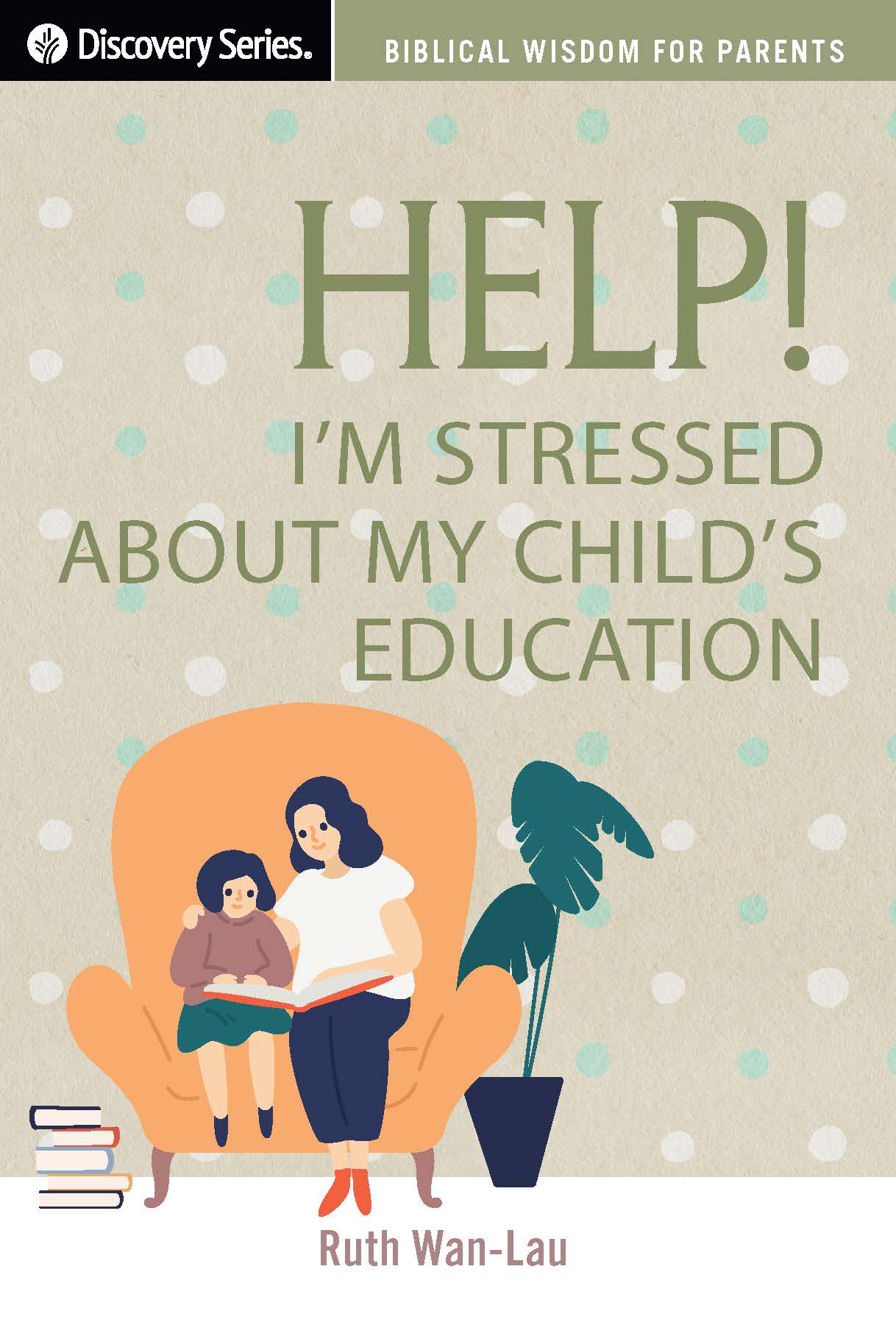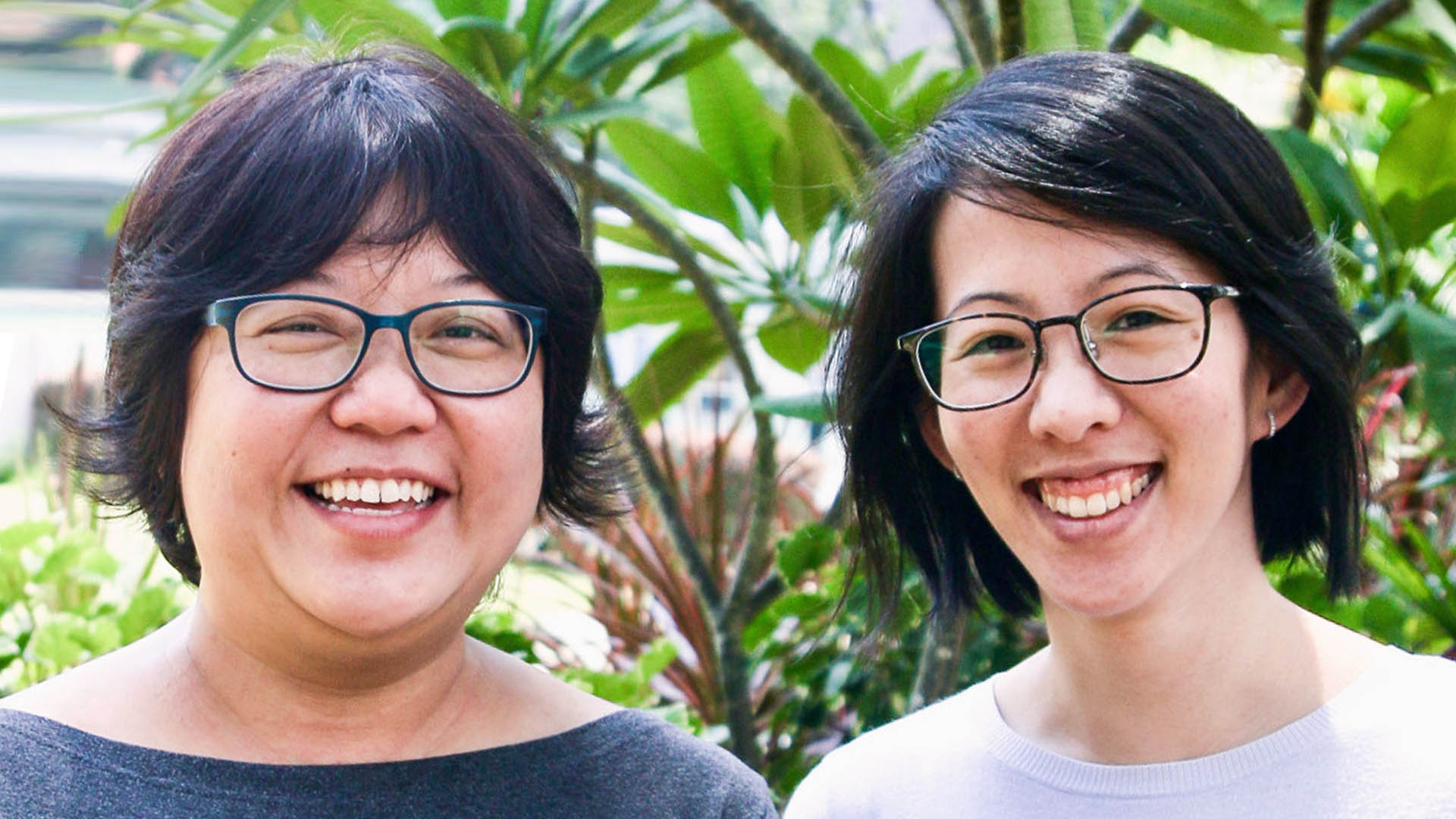
“Doing better in studies and exams.”
That’s the top prayer request of over 100 children aged between 7 and 12, when asked what they wanted prayers for.
Interestingly, this took precedence over other prayer requests, such as wanting others to know about Jesus, and wanting to love and trust God more. For parents, this may—or may not—come as a surprise.
But have we ever stopped to think: What’s our aim in getting our children to do well in their studies and exams?
Is it to help them obtain that paper qualification so that they can live the “good life”, as defined by the world?
Or could there be a deeper purpose to all this: to open their eyes to God’s work around them, and their role in partnering Him in furthering His kingdom?
Help! I’m Stressed about My Child’s Education
Get our latest parenting resource!
This resource to help children cope with exams, Help! I’m Stressed about My Child’s Education, is now available.Get a copy
Every month, we roll out a new resource for parents and children. To find out about these offers, why not subscribe to our email updates? Stay informed about the latest resources available, and be the first to get a copy!
This is the goal that Jillian Lee and Pei Lee have. The two—who are not related—are founders of Sterling Campus, which offers courses and resources that aim to cultivate a culture of faith and life integration in the local Christian community.
For Jillian, Sterling’s principal who oversees training and programmes, it’s a question that hits close to home, having worked as a teacher for six years.
“They were asking me questions like, ‘What is your view of success?’, ‘What’s your calling?’, ‘How do you overcome failure in your life?’”
“I went into teaching to impact students,” she says. “But as the school system places a strong emphasis on exams, tests and milestones, I began to question whether that was all there was to life as a teacher—just preparing these kids for a major exam that would enable them to get to university to take more exams, get a job, and then maybe get married, and have kids who go through the whole cycle again.”
As she continued to take class after class of students through the cycle of education, Jillian began to feel a sense of dissatisfaction. “The students didn’t seem very happy, and I didn’t feel any joy in teaching anymore,” she reflects.
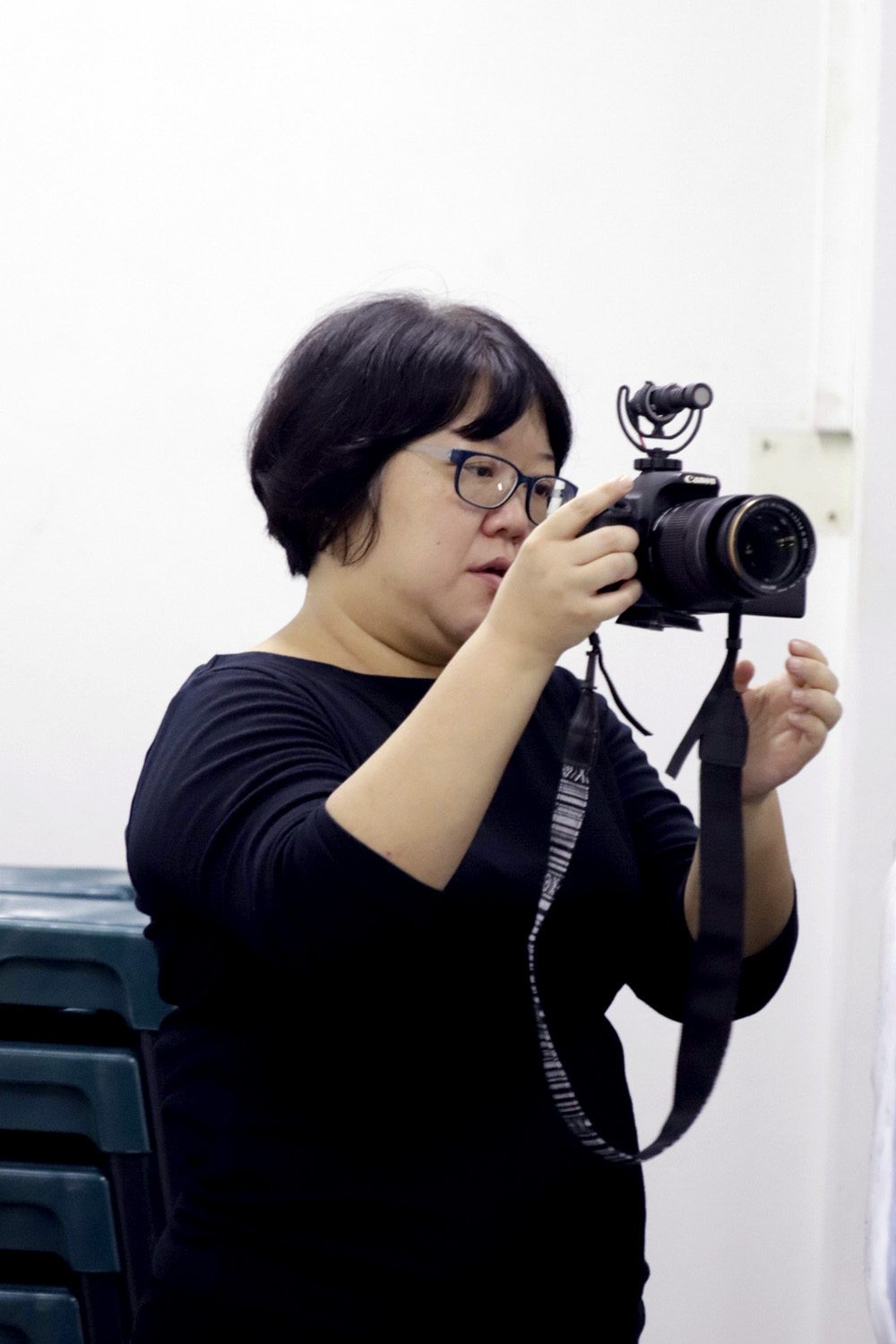 Pei taking photos at a discipleship programme graduation ceremony
Pei taking photos at a discipleship programme graduation ceremony
Her struggle with reconciling the purpose of education with her Christian faith led her to resign, and go on a short mission stint at a Christian school overseas. For the first time in her life, says Jillian, she encountered students who were thirsty for something beyond their syllabus: they wanted to understand the meaning of life itself.
“They were asking me questions like, ‘What is your view of success?’, ‘What’s your calling?’, ‘How do you overcome failure in your life?’” recalls Jillian. “The difference between what they were asking me and what my students had ever asked me was so stark.”
Rediscovering the Biblical Concept of Education
Jillian’s five-day trip in 2009 eventually culminated in a four-year stint at the school teaching English and educational philosophy.
It was also where she met Pei, who had already been serving there for four years. The Malaysian-born journalism graduate was spearheading a myriad of school activities, from teaching and administrative work to media and communications and experimenting with the curriculum.
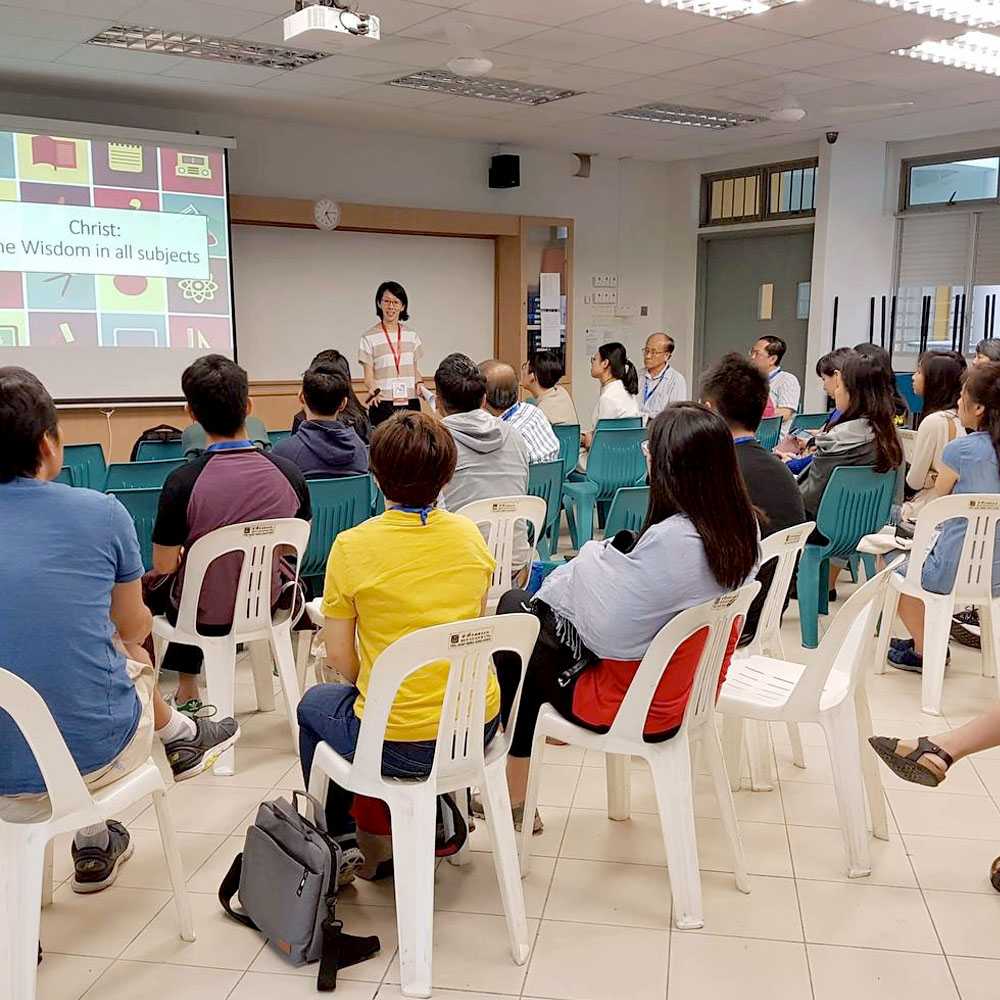 Jillian teaching participants at a missions conference in 2018
Jillian teaching participants at a missions conference in 2018
Despite being tucked away in a poor village with no train station or bus stops, says Pei, the school’s students flourished spiritually and academically—because “the presence of God was there”.
These were not top-performing kids, but they appeared to understand that there was a purpose for their lives. This changed their perspective of why they should study hard, recalls Pei, who is Sterling’s vice-principal. “The moment they started to believe that and see their future through God’s eyes, it gave them the answer to questions like, ‘Why do I bother to develop skills or become excellent at what I’m doing?’”
“I realised that education isn’t about getting good grades—it’s a means for us to partner God in His kingdom work.”
That gave her insight into the idea that studies should be driven not just by discipline, but also by vision. “Some of these students had dropped out of school or had fallen through the cracks. But once they knew that they had a purpose in life, they could leave their past behind and move forward,” she says. “The power of giving future generations that godly vision really stuck with me.”
Jillian nods in agreement. For some parents, she notes, “the whole point of studying hard is to pass your exams, get your certification, and get a good job”. This, she observes, revolves around the aim of maximising children’s potential.
But as she watched how the kids were learning in this school, she discovered a new way of seeing education. “I realised that education isn’t about getting good grades—it’s a means for us to partner God in His kingdom work,” she says. “It’s about equipping children with knowledge, skills, truths, and character, so that wherever they go in society, they can be used by Him. It becomes so much bigger than yourself—it becomes about God.”
Meeting a Crucial Need
Inspired by this vision, the two women determined to expand and replicate it in Singapore. In 2014, they set up Sterling Campus, inviting students to enrol in a Christian liberal arts programme. But after four years of running the school, they realised that an 18-month course might not be feasible in the local context, and turned to offering support and resources for teens and young adults instead.
Today, Sterling runs short seminars and regular workshops—spanning three hours to three months—for parents, young adults, church leaders, and educators. Topics range from understanding worldviews, such as pragmatism and post-modernism, to how to integrate faith and life in areas like art, politics, and education. They also offer resources for parents to help their children see how God works in the world through science.
The aim of some of these courses and resources, say Jillian and Pei, is to equip parents and mentors so they can help the next generation see where God is in the classroom and beyond. “Studying becomes a way of seeing God reveal His wisdom in and through subjects,” says Jillian.
“Many of the youths and young adults we interact with have questions about God, faith, and life, but some are not getting satisfactory answers, and are beginning to question their faith.”
Both women also have a strong conviction in meeting an urgent need of the church: engaging and journeying with millennials and second-generation Christians who are wrestling with their faith, or trying to reconcile it with what they see in school, culture, and on social media.
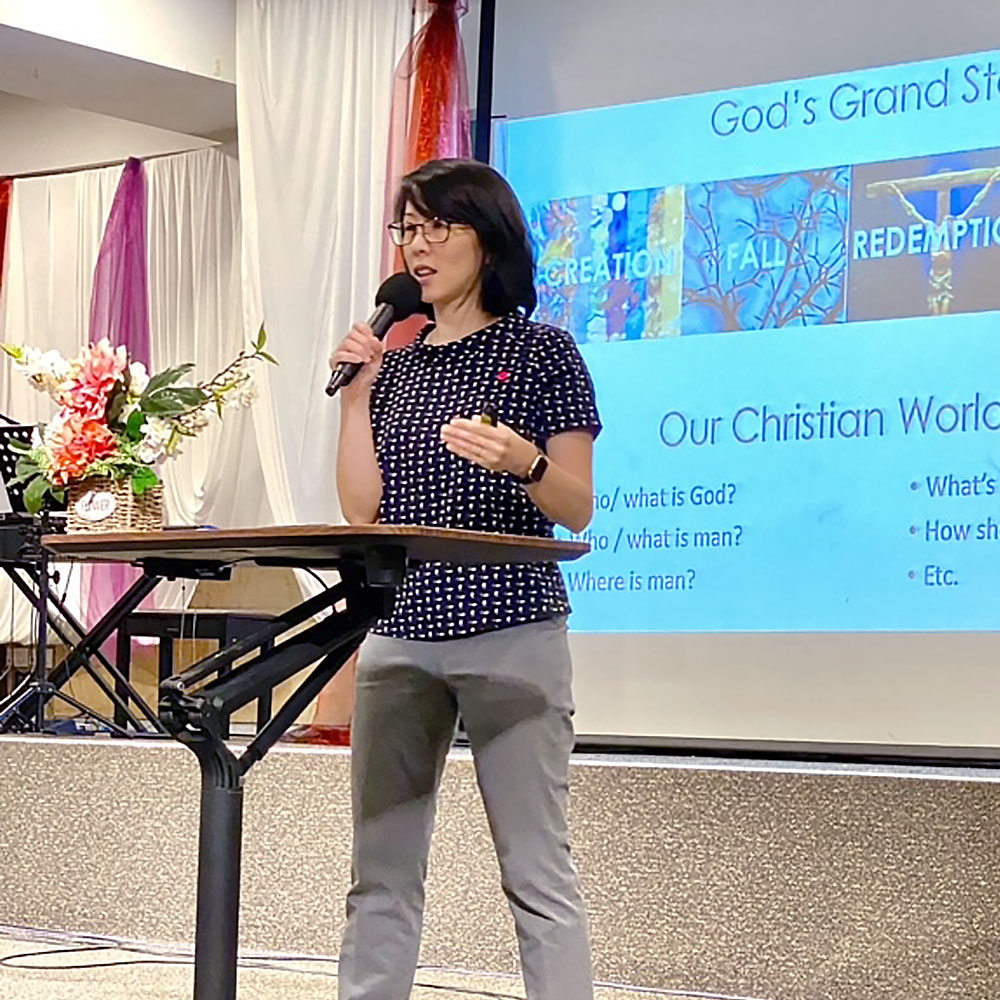 Jillian teaching participants about the Christian worldview in light of God’s grand story
Jillian teaching participants about the Christian worldview in light of God’s grand story
“Many of the youths and young adults we interact with have questions about God, faith, and life, but some are not getting satisfactory answers, and are beginning to question their faith,” says Jillian. “We felt that instead of waiting till kids reach that stage of disillusionment, we need to start early by equipping parents to handle these questions.”
Both women are aware that many parents may not know how to deal with their children’s questions on life and faith.
Jillian shares: “Some youths tell me that their parents say, ‘Aiyah, never mind, just have faith.’ Yes, faith matters, but it matters to deal with the issues of the day, whether it’s answering questions on God’s role in the Covid-19 pandemic or racial injustice.”
Seeing God’s Story through His Eyes
Over the years, the two women have seen participants’ perspectives of God changing, after attending their workshops. One mother, for example, had come to anchor her own faith in God, and subsequently learnt to engage her son who was wrestling in his own walk with God. Another student participant discovered that she had been putting God in a “church box”, and was challenged to bring every aspect of her life under the lordship of Christ.
Some parents, notes Jillian, had discovered that while they had been Christians for decades, they had not fully lived “the Christian life of thinking and contributing to the breadth and depth of God’s kingdom”.
So how can parents help their children turn their heads from their textbooks and open their eyes to the wonderful and mysterious ways of God, both in the classroom and world?
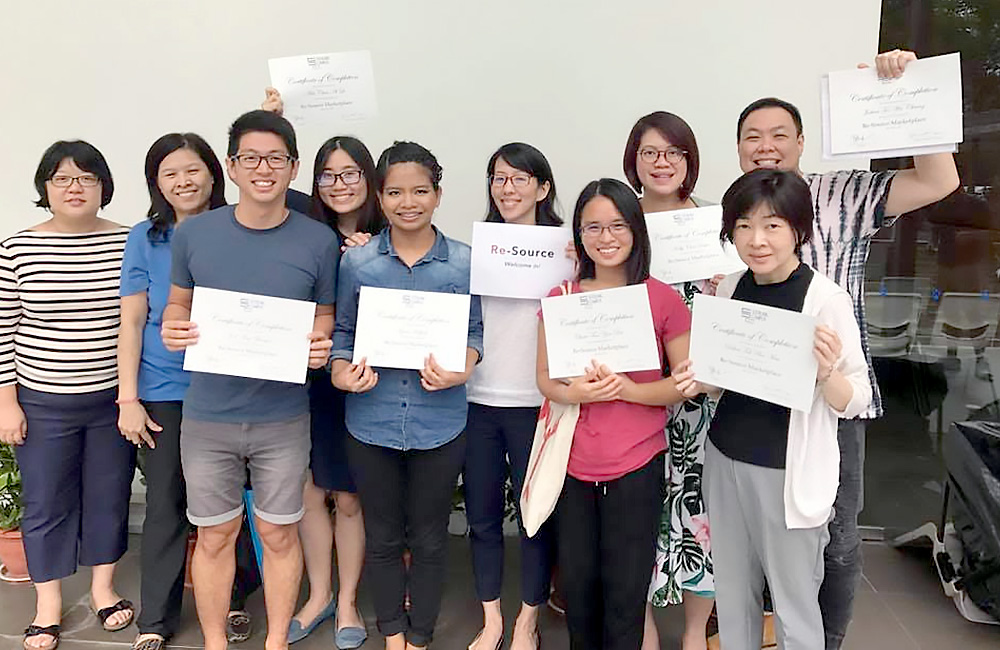 Pei (left) and Jillian (fifth from right) with a cohort of participants who graduated from a short course at Sterling Campus
Pei (left) and Jillian (fifth from right) with a cohort of participants who graduated from a short course at Sterling Campus
Jillian and Pei acknowledge that this can seem challenging when parents already have to deal with the many tasks and responsibilities associated with their children’s education—from ensuring that they keep up with their homework and tests, to managing their co-curricular activities, tuition, and home-based learning.
But, they add, parents can start by first learning to take on an eternal perspective of education. “God has created education and He can use it for His glory,” says Pei.
It can be as simple as asking: ‘Where did you see God in school today? What did you learn about God’s world in science class?’
Jillian suggests that parents start small by having intentional conversations with children at home. “It can be as simple as asking: ‘Where did you see God in school today? What did you learn about God’s world in science class?’. It’s not about instituting this scary ritual of questioning your kids, but intentionally and casually bringing integrating faith to life in your daily conversations.”
“That’s how worldviews are shaped over time, layer after layer, wrestling through questions together,” she continues. “It’s about having your child know that his or her parents are willing to tackle the tough questions in life with them.”
Jillian cites Colossians 1:15–20 as an encouragement to parents:
“The Son is the image of the invisible God,
the firstborn over all creation.
For in him all things were created:
things in heaven and on earth, visible and invisible . . .
For God was pleased to have all his fullness dwell in him,
and through him to reconcile to himself all things,
whether things on earth or things in heaven,
by making peace through his blood, shed on the cross.”
“Christ is the one who created all things, and is Lord and King over creation, salvation, and reconciliation—which means all of life matters to God,” she says. “He’s already reconciled all things to himself. It’s not us who build His kingdom—but we get to be partners, and He’s the one who will bring it to completion.”

